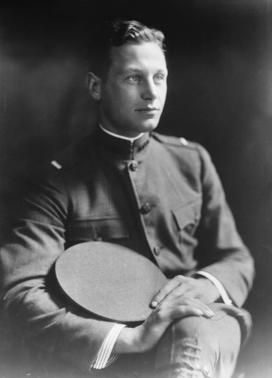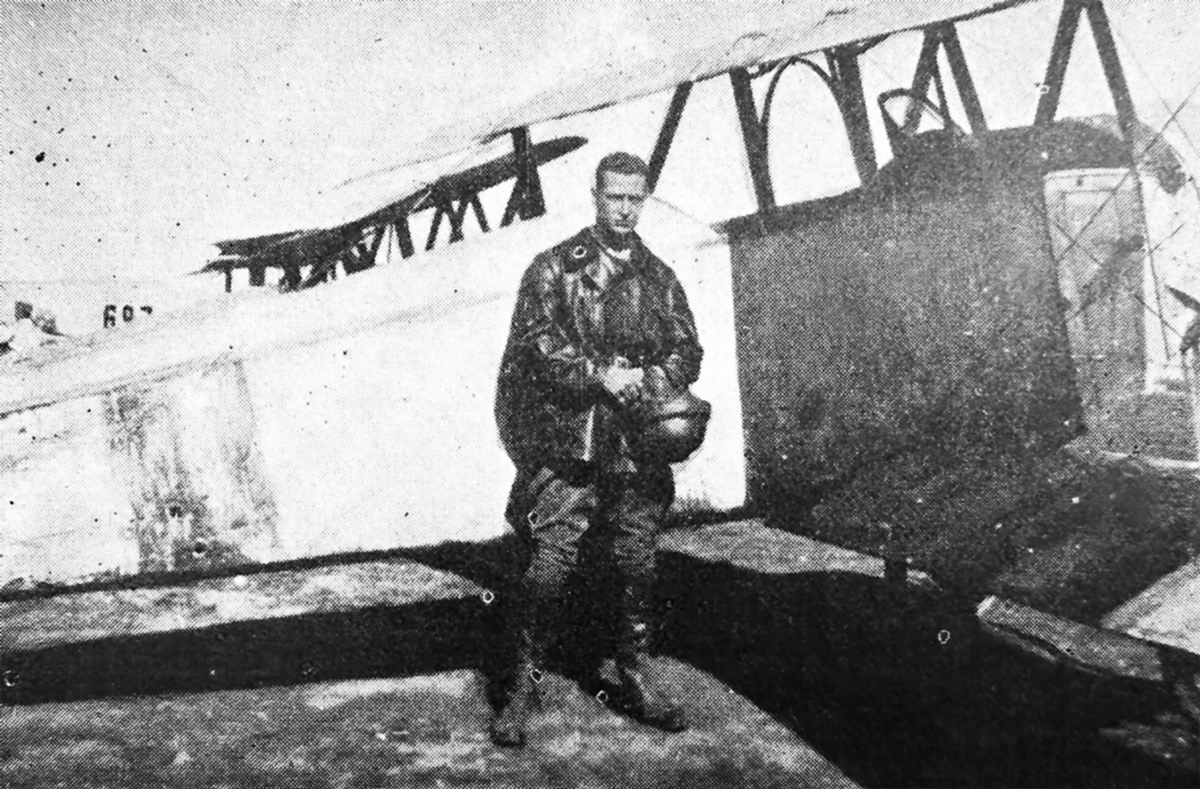The Hobart Baker ’14 Memorial: A Monument to an Ideal Athlete

It is seldom that the opportunity is presented to commemorate the life of a man whose deeds were praised almost as much while he lived as they have been since his death, and particularly a man who spent less than thirty years on this earth. It is also rare to find a young man who combined so many elements that all men recognized in him the ideal of manhood to which they might aspire. When such a man passes away it leaves a silence over those who knew him, and creates a desire to perpetuate his memory.
Thus in Hobart Amory Hare Baker we find a man whose short life left an imprint upon the minds of those who knew him, which will never fade away. The college world of his generation will ever cherish him as the ideal athlete and the type of manhood toward which youth will always aspire. Not only the college men of his day, but of all time, as well as all men who follow sport, will pay tribute to this man.
To those who never knew him the mere review of his career will make its appeal and, it is to be hoped, will create the desire to join in establishing this monument in the form of a skating rink to be known as the Hobart Baker Memorial Rink.
Hobart Baker was born in Philadelphia, and early in youth was trained to obey and to be obeyed. His father, who had been one of the heroes of the gridiron in the ' 80s, saw to it that his son learned to coordinate mind and body from the beginning, and "Hobey" learned to pass a football as soon as he could walk. At the age of twelve he was sent to St. Paul's School at Concord, N. H., where his ability soon maintained its heritage. Here the climate and the facilities for skating made the game of hockey the chief sport of the winter, and it was not long before Hobart made his skill at the game an important factor in the school team's victories over college teams they were permitted to play. During prep- school days, Hobart Baker showed his athletic ability in football, baseball, hockey, rowing, swimming, and tennis, and in addition he maintained a high scholastic standing and won medals for public speaking and debating.
He entered the Freshman Class at Princeton University in the fall of 1910, and during his first year had made his numerals in every sport open to Fresh- men. The two- sport rule operated against him in the other three years of college, so that he represented the University on the football and hockey teams only.
At hockey he established his greatest success and made the sport itself almost as important to the athletic world as football and baseball in their respective seasons. His attitude toward the game, as well as his individual skill, created for him a following which few athletes have enjoyed. He played the game, or any game, for the love of it; he played to win, but he never resorted to any foul means to attain that end. This caused a veneration for him in the minds of the audience and a respect in the hearts of his opponents, which had never before been known to the same extent. For three years he played on the university team, serving as captain in his junior year and refusing the honor in his senior year. Each season greater success than the previous one.
At the banquet after the close of the season in his senior year Hobart Baker was honored as perhaps no college athlete had previously been honored. After speeches and songs written for the occasion, "Hobey" was, mounted upon a great tiger and crowned with a wreath of laurel, while all his friends acclaimed him "king of hockey."
It was not only as an athlete that he gained distinction in college, but also as a member of the university quartet. He had a deep appreciation of music and understood it from a technical as well as an aesthetic point of view. He never missed the opportunity of hearing a good orchestra or joining a group of lads who could sing.
His athletic activities never interfered with his academic work. He was as enthusiastic over his studies as he was about his other activities. He loved poetry and good literature and spent his spare hours reading while others lost sleep gossiping and passed away their time in the various ways which college life affords. It wasn't that he scorned the petty vices or the fellowship which they offer; he had so much in life that interested him that he wanted to get the most out of it and make himself more fit to reflect happiness in others. His enthusiasm and energy made him a delightful personality in any gathering, but it was marked by a modesty and un- selfishness which were almost unbelievable. Newspaper men learned this perhaps more often than others, for after hockey games when they sought his photograph, or his comments, he turned away or declined to let them quote him in any way; for he sought no personal glory.
After college days Hobart Baker became better known to the athletic world at large by his activities with the St. Nicholas hockey team. Previous to the declaration of war by the United States he had learned to fly with a group of amateur aviators who believed in preparation, and who had a more accurate vision of the future than others. Thus it was natural to find Captain Hobart Baker in France as a Squadron Commander when the Armistice was signed. His untimely death in December, 1918, when he had sailing orders in his pocket, marked the end of his career. "It's better for me to take a chance than some one else,” were his last words when he took the machine up to be tested, against the protests of his friends waiting for him to accompany them to the boat for the U.S.A.
It is not difficult to understand why a skating rink is proposed as a memorial to Hobart Baker. Yet it is perhaps necessary to point out that there has been no opportunity to practice hockey at Princeton, the teams having had to travel to New York or Philadelphia twice a week to practice at night, except when a good winter provided ice. Princeton seldom has a winter which offers more than a few weeks of skating, and most of the time, rain or snow has prevented any consistent practice for a hockey team. This was realized years ago, and a movement was started by Hobart Baker himself to secure an artificial ice rink where hockey could be played from early fall till late spring. What, therefore, is more fitting than his friends' endeavor to carry out his ardent wish for Princeton, to build a hockey rink? The new rink will not only afford an opportunity for the university students, but will add greatly to the recreational facilities of the town of Princeton. The rink is to be managed by the University Athletic Association and it is planned to arrange hours each week of the season for general skating open to the public.
This was originally published in the May 16, 1922 issue of PAW.












No responses yet